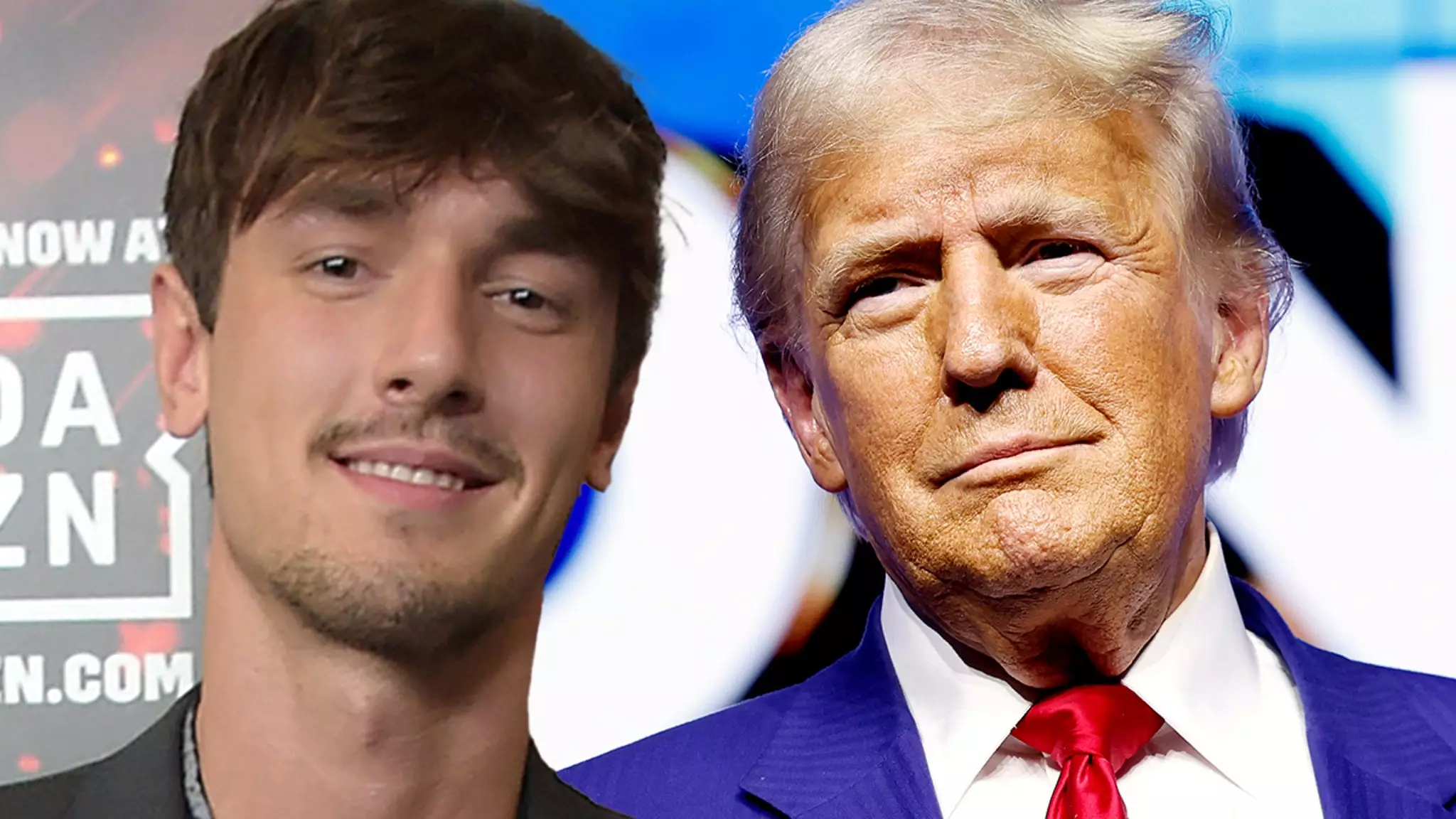In today’s digital landscape, social media platforms have emerged as powerful arenas for public discourse, influencing political campaigns and shaping societal narratives. As the world witnessed in the recent presidential election, internet influencers are increasingly stepping into the political spotlight, merging entertainment with activism. One striking example is Bryce Hall, a prominent social media personality who openly supported Donald Trump throughout his campaign. His aspirations go further than mere support; he envisions a collaborative effort with the soon-to-be former president to amplify Trump’s presence among younger audiences.
Hall’s relationship with Trump was nurtured through his connections, particularly with Blake Wynn, a key figure in Trump’s campaign and the nephew of famed casino mogul Steve Wynn. This connection highlights an interesting trend where influencers leverage their social capital to gain access to powerful political figures. Bryce Hall’s direct interactions with Trump reflect a strategic approach where culture meets politics, allowing influencers to bridge gaps between various demographics. Their discussions, including a light-hearted proposal from Trump to create viral content together, illustrate the merging of political support and entertainment.
The significance of Hall’s proposed collaboration with Trump cannot be overstated. With a staggering following of almost 24 million users on TikTok alone, Hall possesses the tools to reach and engage one of the most critical voting demographics: Gen-Z. This generation is known for its digital prowess and inclination towards influencers, making Hall an ideal candidate to present Trump to a younger audience. In an era where attention spans are fleeting, this type of collaboration could serve a dual purpose: it could humanize the president while simultaneously appealing to younger voters and inviting them to engage in the political process.
However, Hall’s endorsement does not come without risks. Advocating for Trump during a time of fierce political division was undoubtedly a gamble, but one Hall feels was worth taking for the “greater good.” His comments shed light on the often-unpredictable nature of public opinion and the volatile landscape in which today’s influencers operate. Despite the potential backlash, Hall’s willingness to stake his reputation for political support indicates a transformative mindset among young influencers—one that embraces activism and engagement, despite the risks involved.
Bryce Hall’s aspirations to collaborate with Trump post-election encapsulate a broader phenomenon in which social media influencers are not just passive observers but active participants in the political arena. As seen with other streamers who were acknowledged during Trump’s victory speech, the involvement of influencers is undeniable. Their ability to galvanize followers can lead to significant shifts in public perception, reinforcing the notion that social media influence is now an indispensable element of modern political strategy. As both influencers and politicians explore this uncharted territory, the implications for future elections and political engagement are vast—heralding a new era where the lines between celebrity, influence, and governance continue to blur.


Leave a Reply